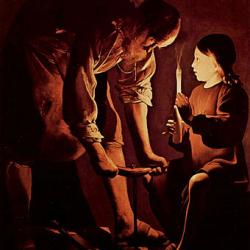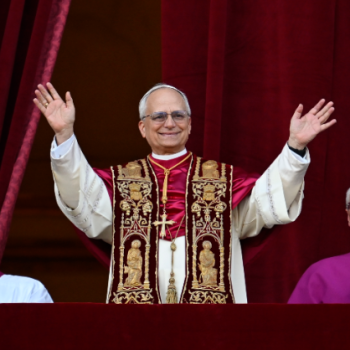
Much has been made of the metaphor of the Israelites’ journey from Egypt to Canaan, and rightly so. It is a powerful story, in which the Hebrew people learned to free themselves from a slave mindset, grew to believe the promises of God, and readied themselves for possession of their promised inheritance, which was a fertile land of their own. A journey which could have taken weeks instead took many years, because of the depth of change and preparation needing to unfold in the hearts of the people.
This metaphor can be understood in New Covenant terms too – we all undergo a myriad of journeys, starting with the perception of a promise of God and ending with receiving/owning the reality or manifestation of that promise. This can be understood in specific terms (the receiving of a singular promise) or in overarching terms (the moving from death to life in different areas of our lives as the Holy Spirit leads us to from fear and bondage into love and freedom – otherwise known as the process of sanctification). As with the Israelites, these journeys can take many years, due to the time it takes to yield to the Spirit and overcome fear. The truth is that we already have with us ‘all that is needed for life and godliness’. The gift of God has been fully delivered to our spirits, but it takes a lifetime to unpack it.
My first real engagement with this central Biblical metaphor was at the age of 19, when it came alive to me in a specific way. After a dry church upbringing, I was seeking a more engaging, tangible, and satisfying experience of walking with God, and had come to see the lived experience of daily spiritual fullness as a kind of promised land – a version of faith that was vivid, powerful, and overflowing with love and mercy in the presence of God. How I yearned for it, seeking God in prayer for hours each day, filling my heart and mind with the word of God, believing and seeking and asking and knocking, knowing all the while that God wanted me to have exactly what I desired and more. The Bible told me to keep going. Ephesians 3:20 begins by describing God thusly:
‘Now to him who is able to do immeasurably more than all we ask or imagine…’
I can ask and imagine a LOT! But God wanted to do more. Immeasurably more than I could ask or imagine. This was language that lit a fire in my heart. God wanted to perform wonders in me and through me, in us and through us. I prayed every day, sometimes getting up at 5am for two hours of seeking before the day even began – not because this in any way earns the blessing of God, but because I felt called to do so. During these long times of prayer my heart was being prepared to receive the promise. I was locked in poor thinking, bad theology, and a low self view, and all that time I spent in prayer was necessary to soften and ready me for blessing.
I was determined to enter my promised land. Breakthroughs began to happen – first I started to move in spiritual gifts. Now please, I know this reawakens a controversy for some, but I do not believe this step can be skipped. Practicing the presence of God requires the basic humility to receive the gifts the Holy Spirit has chosen to dispense. These ‘gracelets’ (as they ought to be translated, rather than ‘gifts’) are not an option. Stacking chairs is not an alternative. We all need to dive deep into the river of the Spirit, and doing so requires flowing as he leads. The Bible is clear – we should all eagerly desire this special category of gifts, and especially to prophesy. 1 Cor 14, 1:
‘Follow the way of love and eagerly desire gifts of the Spirit, especially prophecy.’
Stacking chairs is important, as is every other practical calling of God, These are part and parcel of how each of us is called to serve – according to our make-up as a person, contributing to the working of the community we belong to. But these are not in the same category as the ‘charis’ gifts of the Spirit, which every believer is called to flow in, regardless of their practical gifts and other forms of service. Take Philip, for example, who in the early church was chosen as a deacon – one who oversees the administrative tasks in the church. Acts 6:1-6,
In those days when the number of disciples was increasing, the Hellenistic Jews among them complained against the Hebraic Jews because their widows were being overlooked in the daily distribution of food. So the Twelve gathered all the disciples together and said, ‘It would not be right for us to neglect the ministry of the word of God in order to wait on tables. Brothers and sisters, choose seven men from among you who are known to be full of the Spirit and wisdom. We will turn this responsibility over to them and will give our attention to prayer and the ministry of the word.’
This proposal pleased the whole group. They chose Stephen, a man full of faith and of the Holy Spirit; also Philip, Procorus, Nicanor, Timon, Parmenas, and Nicolas from Antioch, a convert to Judaism. They presented these men to the apostles, who prayed and laid their hands on them.
To qualify to wait on tables, those chosen to become deacons were first of all ‘known to be full of the Holy Spirit’. Acts shows us more of two of these seven. Stephen is described in verse 8 as:
‘…a man full of God’s grace and power [who] performed great wonders and signs among the people.’
In chapter 8, Philip is described similarly, and in a later passage teleports out to the desert and leads a high-ranking Ethiopian official to the Lord, which as far as anyone knows is how the Gospel first reached Africa.
No matter your method of service, albeit the most unseen of practical tasks, you are called to be full of the Holy Spirit and lead a life characterized by the direct intervention of the Holy Spirit in people’s lives, through you. That might seem like a world away from where you are now, but that’s ok – we all need a promised land to yearn for; something to pray for, and seek with all our hearts.
Why should we seek all this? Because in doing so you will know God as you have never done before. You will feel his love and compassion in tangible ways, and see people’s lives changed. Your faith will become about all the people God uses you to help, instead of insular and riddled with self-measurement.
I received the promise of God. I moved from dry, experientially empty faith to a life of spiritual abundance. I bathe in the love and presence of God every day, and use his power to help people, as his Spirit leads.
What is the Holy Spirit calling you to dream for? To believe for? Remember – he is able to do more than you can ask or imagine.
If you want to delve more deeply into this topic, I delivered a talk during lockdown.
If you want to support me in this ministry, please make a pledge to my Patreon page.
8/12/2022 7:55:19 PM





